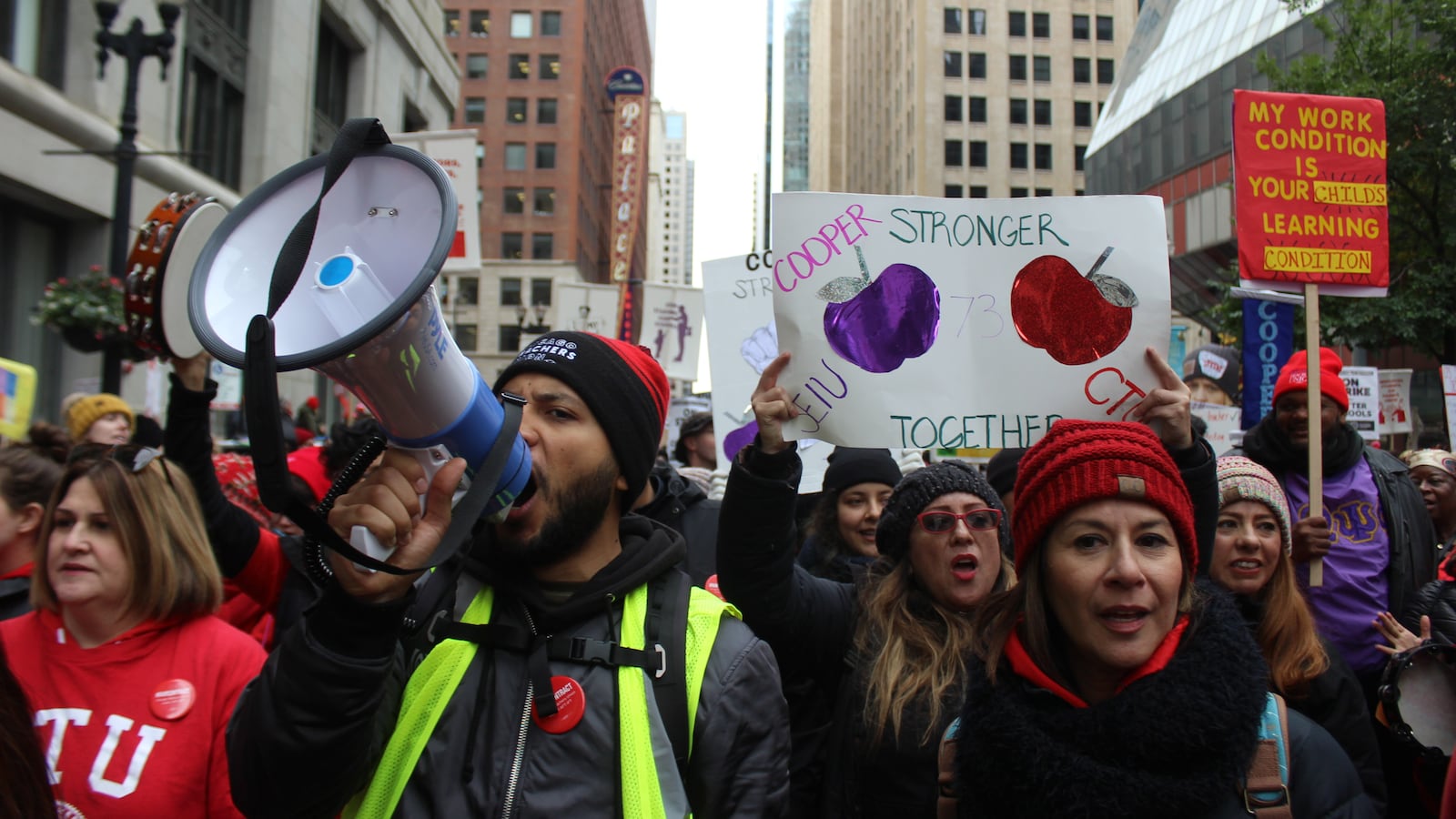Ask Chicago teachers how they feel about the tentative agreement struck by the union and Chicago Public Schools, and you get a polarized list of answers.
Teachers vote on the new contract by secret ballot on Thursday and Friday at their schools and union headquarters. If more than 50% reject it, the union’s House of Delegates could weigh whether to go out on strike again.
Related: Three steps necessary to finalize the Chicago teachers contract
Chalkbeat surveyed teachers about how they felt about their new contract. Of 62 detailed answers we received over seven days, 58% of respondents reported that they felt like the strike did not achieve their desired results and was not worth it to them personally. Thirty percent felt more positive, writing that they believed the new contract would make a meaningful difference to their jobs or at their school. The remaining 12% said they were neutral or planned to reserve judgment until they read a full agreement that included language over how much in raises will be disbursed to veteran educators.
However, it’s not clear how any of those teachers will vote on the agreement. Casting a “no” vote, which could potentially initiate a new walkout, is likely to weigh heavily on teachers’ minds.
Several teachers had harsh words for union leadership and the final result: “I feel gypped, frankly,” wrote Robert Foote, a teacher at Locke Elementary in the Montclare neighborhood. “The six days that weren’t reinstated by the mayor are a severe blow to us. She gave us raises but these raises mean nothing compared to a loss of six days’ pay.”
“Betrayed,” wrote one union member.
“It won’t change anything,” wrote another.
Then there were those who felt positive or optimistic about the outcome and said they felt like their efforts delivered a promise of more support staff, particularly for schools in need: “We achieved some historic measures toward social justice,” said Bryan Wilson, from Taft High School in Norwood Park, citing better staffing, mechanisms for controlling class size, and investments in developing teachers and nurses from underrepresented groups.
Other survey respondents said they were neutral about the contract or unclear how it would impact their schools or their own working conditions. “The extra help for students will make our jobs easier,” said Deborah Ditkowsky-Fink, a teacher who works as a substitute across multiple schools. But as for the direct impact of the tentative deal, she hedged: “It depends on how long it takes to implement it.”
Ingrid Murillo-Torres, a special education teacher at Little Village Academy, said she felt positive about the outcome, particularly the boost in special education positions in the tentative deal. “A strike is a bargaining tool and not a guarantee that 100% of demands are met,” she wrote. “I feel like this contract achieved a lot.”
Karen Trine, who teaches at Whitney Young High School, said she felt like the national attention from the walkouts of teachers and support staff helped underscore the conditions of city schools and the learning environment of its children.
“It is hard to see our downtown booming with development,” she wrote, “but here the city does not have money for education. I hope this strike will change that — but I fully expect that advocacy work of teachers, parent groups, and the union will always be needed.”
But one West Side high school teacher, who wished to remain anonymous, said the staffing gains still fall short of what her students need, leaving her unsettled. “Our students needed a tourniquet, and the district gave them a Band-Aid.”
On five issues the union pegged as central before the strike, the tentative agreement gives teachers some clear wins on two of them: staffing and pay and benefits — although how much additional pay veteran teachers will reap is still unclear and prompting some more experienced teachers to question the deal.
A third issue, class size, ended up with a compromise — the union got more money for a committee with some power to hire additional teachers aides, and it won automatic triggers when class sizes balloon past a certain threshold. But the city will not lower the cap on class sizes.
On prep time, the union succeeded only in forcing the city to reel back a proposal that would have given principals more authority over prep time. But the district didn’t grant additional prep time for elementary teachers — a need that many educators described as fundamental.
On the fifth issue over contract length, the city stood firm on a five-year contract, two years longer than the union put forward.
Over the weekend the union held members-only workshops to field teachers’ questions about the tentative agreement.

